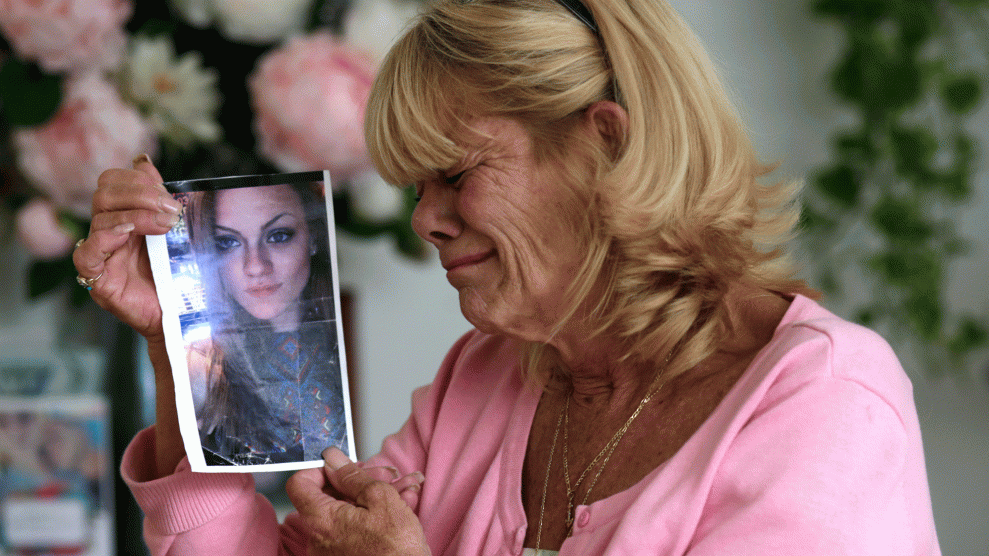
Michelle Holley of Fort Lauderdale holds a photograph of her daughter Jaime Holley, 19, who died of a heroin overdose in November 2016.Lynne Sladky/AP
About 64,000 Americans died from drug overdoses last year—a staggering 21 percent increase from the 52,404 in 2015—according to the first government estimate of drug deaths in 2016. Overdoses now kill more Americans than HIV did at its peak in 1995, and far more than guns or cars do today.
The numbers, released by the Centers for Disease Control and Prevention, are provisional and will be updated monthly, according to the agency.
Fueling the rise in deaths is fentanyl, a synthetic opioid up to 100 times more potent than morphine, and fentanyl analogs, or slight tweaks on the fentanyl molecule. This has not always been the case: As the chart below shows, the drivers of the opioid crisis have changed from prescription painkillers to heroin, and then to fentanyl.
As Dan Ciccarone, a professor at the University of California-San Francisco School of Medicine, recently wrote in the International Journal of Drug Policy:
This is a triple epidemic with rising waves of deaths due to separate types of opioids each building on top of the prior wave. The first wave of prescription opioid mortality began in the 1990s. The second wave, due to heroin, began around 2010 with heroin-related overdose deaths tripling since then. Now synthetic opioid-related overdoses, including those due to illicitly manufactured fentanyl and fentanyl analogues, are causing the third wave with these overdose deaths doubling between 2013 and 2014 .
The epidemic is straining the capacity of morgues, emergency services, hospitals, and foster care systems. Largely because of prevalent drug use and overdose, the number of children in foster care nationwide increased by 30,000 between 2012 and 2015.
This spring, President Donald Trump created a commission led by New Jersey Gov. Chris Christie to advise the administration on how to respond to the epidemic, but the administration has yet to act on its recommendations.
















